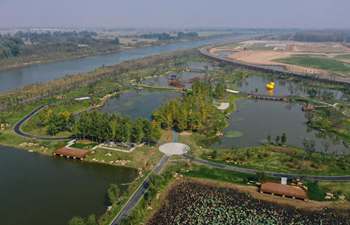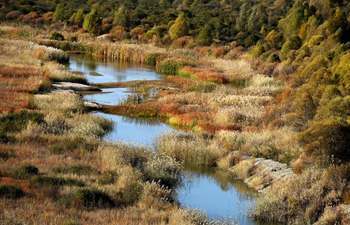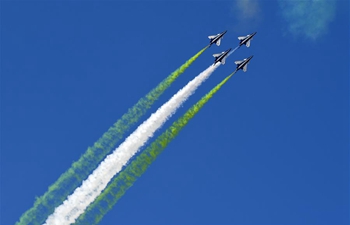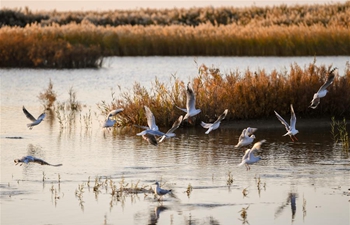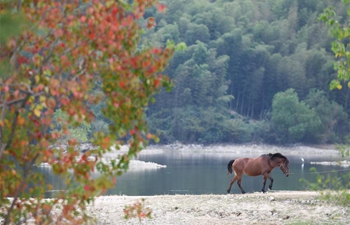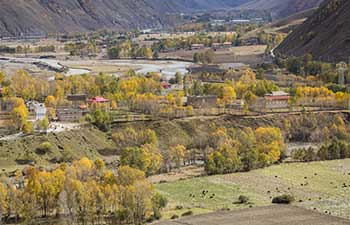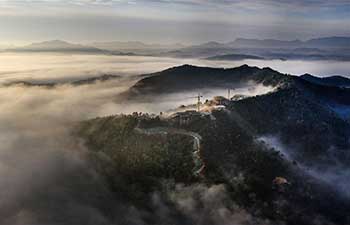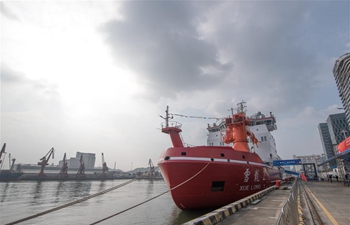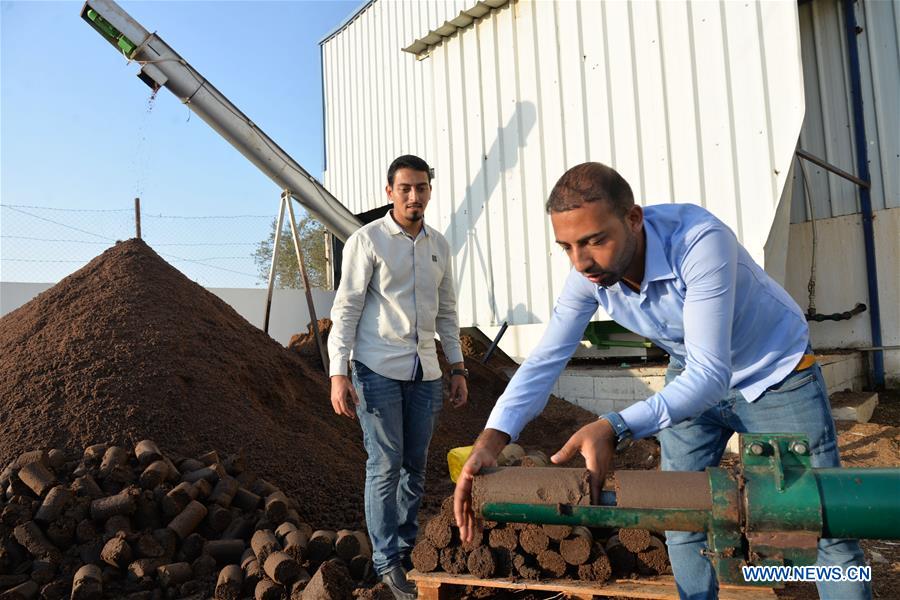
Engineers work on making pomace-wood in Khan Younis, southern Gaza Strip, Oct. 20, 2019. Engineers from the southern Gaza Strip city of Khan Younis have recently succeeded to turn olive oil waste into flammable and eco-friendly pomace-wood that can be used to heat houses during winter. (Photo by Rizek Abdeljawad/Xinhua)
by Emad Drimly
GAZA, Oct. 22 (Xinhua) -- Engineers from the southern Gaza Strip city of Khan Younis have recently succeeded to turn olive oil waste into flammable and eco-friendly pomace-wood that can be used to heat houses during winter.
In the Gaza Strip, thousands of tons of pomace, the solid waste from the olive kernel during the olive oil extraction process, are dumped annually into farmland or bird and animal farms during winter, posing dangerous effects on environment and health.
To avoid such threats, three Palestinian engineers decided to find practical use of the waste by mixing it with chemical materials to get rid of its bad smell.
After that, the waste is pressed through a manual machine that turns the residues into of small flammable cylinders.
The engineers then put the cylinders under the sun for three days until they are completely dry and then available for human use.
The engineers said farmers, poultry owners and citizens will benefit the most as the initiative will significantly provide them with money and warmth without causing environmental damage.
Gazans often suffer from continuous power cuts, which prevent them from getting the necessary heating during cold winter days.
"Over the past years, citizens have always suffered from a lack of heating, with power cuts and lack of money to use alternatives," said Tamer Abu Ta'ima, one of the three engineers working on the initiative, told Xinhua.
The 24-year-old engineer said the new product is considered environmentally friendly, noting that the team has managed to remove the unpleasant smell of olive residues.
He pointed out that he and his colleagues have obtained a certificate from Al-Azhar University in the Gaza Strip that their product can be used safely.
At the same place where the engineers work on their product, another engineer Khaled Abu Ta'ima, 25, was observing the machine and inspecting the pomace cylinders before use.
"Turning olive oil waste into flammable products solved environmental and economic problems that have always worried owners of olive presses and farmers," the engineer said.
"The olive oil residues account for about 40 percent of the total amount of olives harvested annually," he said, adding that solid olive pomace is not biodegradable and causes health hazards if accumulated for long periods.
For his part, spokesman for Abassan municipality in Khan Younis, Mohammed Abu Yusuf, said that the municipality has been supporting the project since it started, noting that the municipality supports youth projects that contribute significantly to the protection of the environment and boosting national economy.
The official pointed out that about 600 tons of olive waste in Abasan town of Khan Younis can now be safely used without causing any damage to the environment, humans and animals.
Olive harvest season, which starts in October, is considered one of the most important annual seasons for the people of the Gaza Strip, as the seaside territory has a large number of trees to cover a vast part of the population's oil and olive needs.
Around 38,000 dunams (38 square km) are planted with olive trees across the Gaza Strip, 28,000 of them fruitful, said the head of horticulture department at the Ministry of Agriculture in the Gaza Strip, Mohammed Abu Odeh.
?




